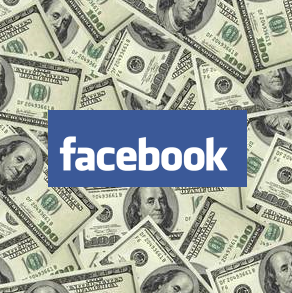 Facebook has filed its S-1 form with the SEC, announcing its intention to go public.
Facebook has filed its S-1 form with the SEC, announcing its intention to go public.
The SEC filing is included at the end of this post for your convenience, since this news has understandably had a negative impact on the SEC’s site.
The stock ticker symbol will be FB. No starting price has yet been named, but Facebook did say in the filing it expects to raise $5 billion in the IPO. The transaction may leave the company valued between between $75 and $100 billion.
“Facebook was not originally created to be a company,” wrote CEO Mark Zuckerberg in a letter within the S-1.
June 5th: The AI Audit in NYC
Join us next week in NYC to engage with top executive leaders, delving into strategies for auditing AI models to ensure fairness, optimal performance, and ethical compliance across diverse organizations. Secure your attendance for this exclusive invite-only event.
“It was built to accomplish a social mission — to make the world more open and connected… There is a huge need and a huge opportunity to get everyone in the world connected, to give everyone a voice and to help transform society for the future. The scale of the technology and infrastructure that must be built is unprecedented, and we believe this is the most important problem we can focus on.”
Facebook currently claims 845 million active monthly users, with a fairly even breakdown between markets in North America, Asia, Europe, and South America/Africa (with the latter two regions considered as a whole). The site claims 483 million daily active users, and the S-1 says Facebook also has 425 million mobile monthly active users.
BREAKOUT POST: Facebook made $1B profit on $3.7B revenue last year
Financial firms Morgan Stanley, J.P. Morgan, Goldman Sachs, Merrill Lynch, Barclays, and Allen & Company are named on the S-1 as underwriters for the deal, with Ernst & Young acting as an auditing and accounting expert for the deal.
As for which market the stock will debut on, the company states in the S-1, “We intend to apply to list our common stock on the NASDAQ Global Select Market or the New York Stock Exchange.”
Zuckerberg still holds the majority of the company’s voting power; in other words, he is the single largest shareholder. “Mr. Zuckerberg will be able to effectively control all matters submitted to our stockholders for a vote, as well as the overall management and direction of our company,” reads the form.
And other high-profile shareholders have arranged to vote as directed by the CEO. We read: “Under one type of voting agreement, stockholders agreed to vote all of their shares as directed by, and granted an irrevocable proxy to, Mr. Zuckerberg at his discretion on all matters.” These parties include but are not limited to Founders Fund, co-founder Dustin Moskovitz, early employee Sean Parker, and a handful of others.
Altogether, Facebook now has more than 3,200 employees — a 50 percent increase year-over-year — the form says. Facebook employees and other shareholders are prohibited from selling stock for a period of three months — half the usual six-month lockup period. Zuckerberg is being held back from selling for a six-month period.
BREAKOUT POST: Mark Zuckerberg owns 28.2% of Facebook
In the form, we learn that Zuckerberg’s salary sits at $500,000 annually; it will go down to $1 beginning January 2013, a common move by CEOs for tax purposes (Steve Jobs also received a $1 annual salary). Other prominent Facebook executives, including Sheryl Sandberg, make between $275,000 and $300,000 in base salary.
The company has taken nearly $2.5 billion in institutional funding since its founding in 2004. Its revenue last year totaled $3.711 billion, according to the filing — around $500 million less than the $4 billion-plus figures anticipated by many analysts. Net earnings for 2011 stood at an even $1 billion.
No date for the public sale of Facebook stock has yet been set, but the IPO has been anticipated since last year, when the company’s number of shareholders hit an SEC-imposed limit, triggering the beginnings of IPO proceedings.
“We hope to improve how people connect to businesses and the economy,” Zuckerberg’s letter concludes.
“We think a more open and connected world will help create a stronger economy with more authentic businesses that build better products and services.”
[scribd id=80167325 key=key-18mvsojvgt3tz1puijzg mode=list]
